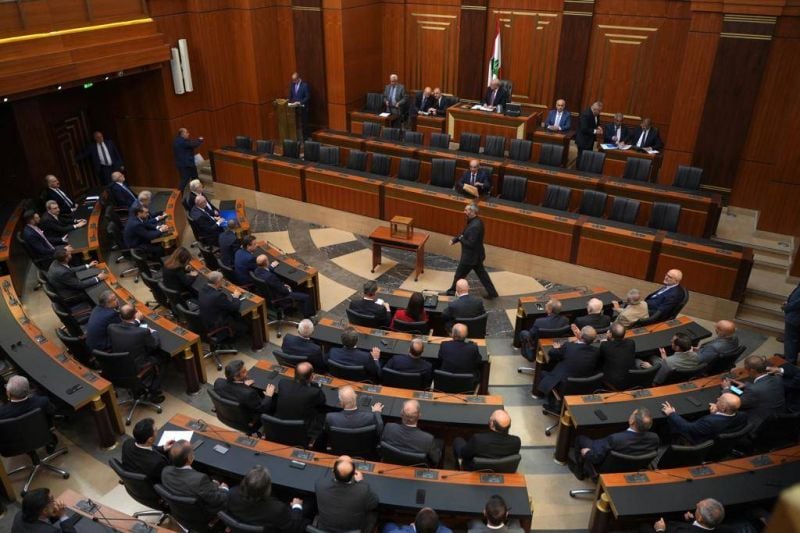
Lebanese MPs during the fifth Parliamentary session to elect a new president, on Nov. 10, 2022. (Credit: Mohammad Yassin)
BEIRUT — Lebanon's Parliament Speaker Nabih Berri on Thursday at 11 a.m. convened a fifth parliamentary session devoted to the election of a successor to Michel Aoun, whose term as president expired on Oct. 31.
According to Berri, the required two-third quorum of 86 out of 128 MPs was attained.
This is the first electoral session to be held since Lebanon officially entered in a total power vacuum at the executive level, meaning the country is without a president at the same time as it has no fully empowered cabinet. The government of Najib Mikati resigned in the aftermath of May parliamentary elections and has been serving in a caretaker capacity since.
The previous four sessions devoted to the election of a new president failed due to lack of prior political agreement on a candidate, as is customary in Lebanon, meaning no candidate achieved the two-thirds majority needed in the first round of voting to be elected president. The legislature has repeatedly lost quorum before the initiation of a second round of voting.
Lebanon entered the presidential election period on Sept. 1, but Berri waited until Sept. 29 to call the first electoral session. Faced with a camp united behind Hezbollah and still voting blank due a lack of agreement on a single candidate, opposition groups remain unable to motivate the required support for a single candidate and are drowning in their differences, accentuated by a schism within the Forces of Change bloc.
In this round of voting, a candidate must obtain a two-thirds majority, or 86 votes, to be elected president.
At each new Parliament session convened to elect a new president, the voting process is reset, meaning that even if a first round vote took place at the previous session, the legislature will again begin with a first round vote. There is some debate that this approach in fact contradicts the constitution, according to which, a two-thirds majority is needed to elect a president in the first round of voting, while only a simple majority is required in all subsequent rounds. Some contend that first found should be considered as the vote Parliament held on Sept. 29, which returned no conclusive results.
If a second round of voting is held today, only a simple majority, or 65 votes, will be needed to elect a candidate.
The international community has repeatedly called on Lebanon to put an end to its executive power vacuum, pleading for the election of a new president without delay. Lebanon, grappling with a dire economic crisis since 2019, needs to implement serious reforms in order to obtain international financial assistance.